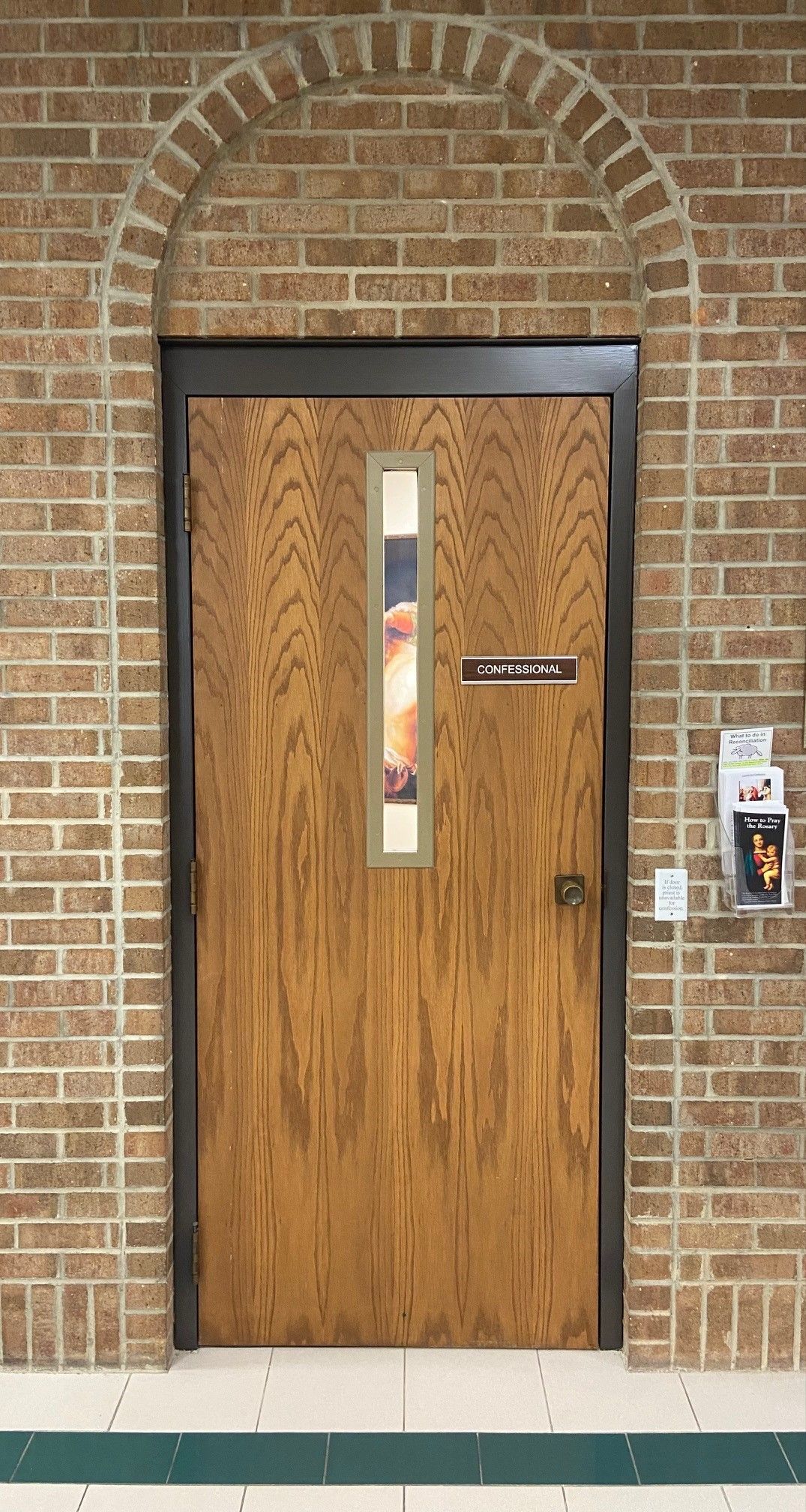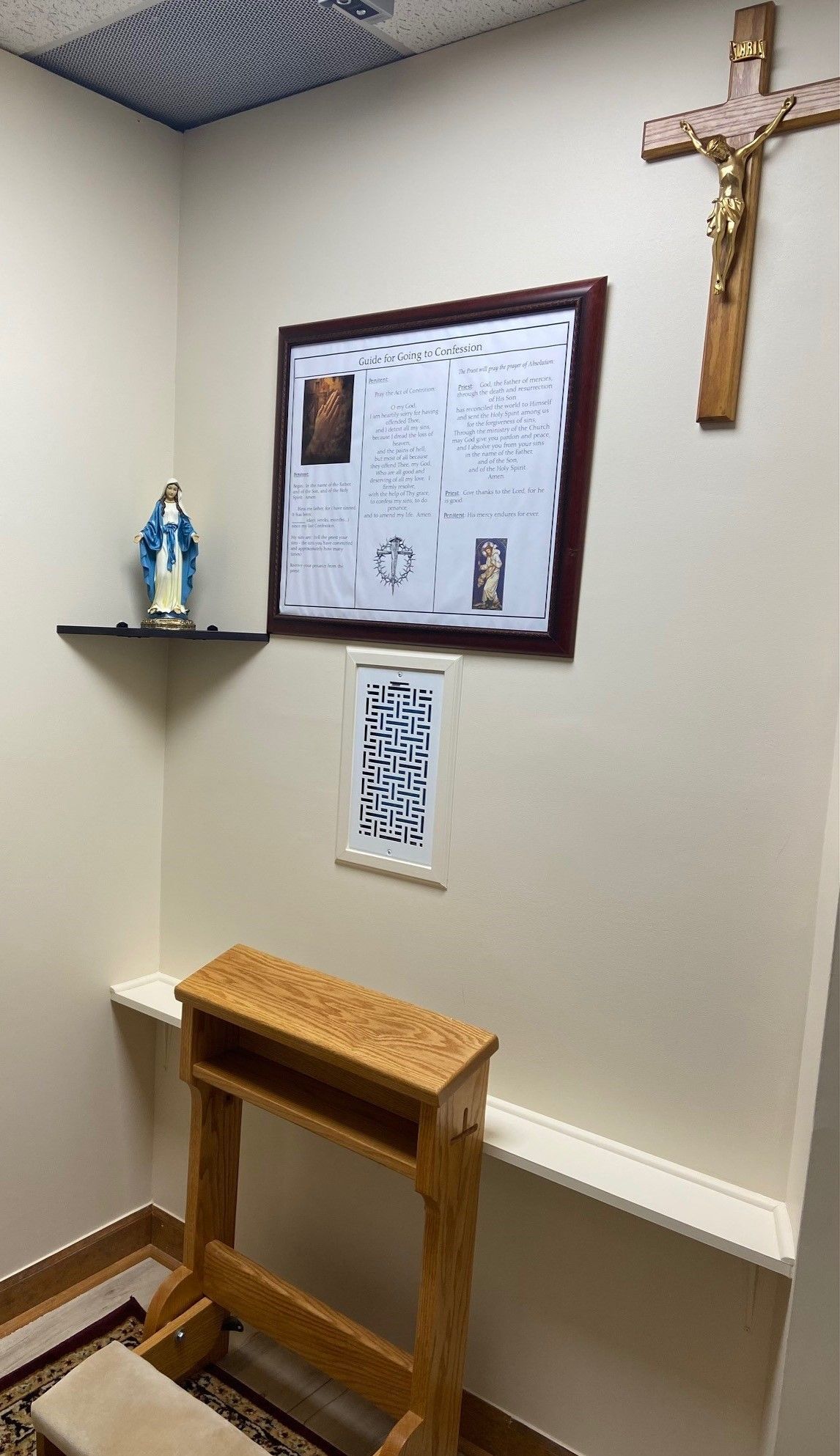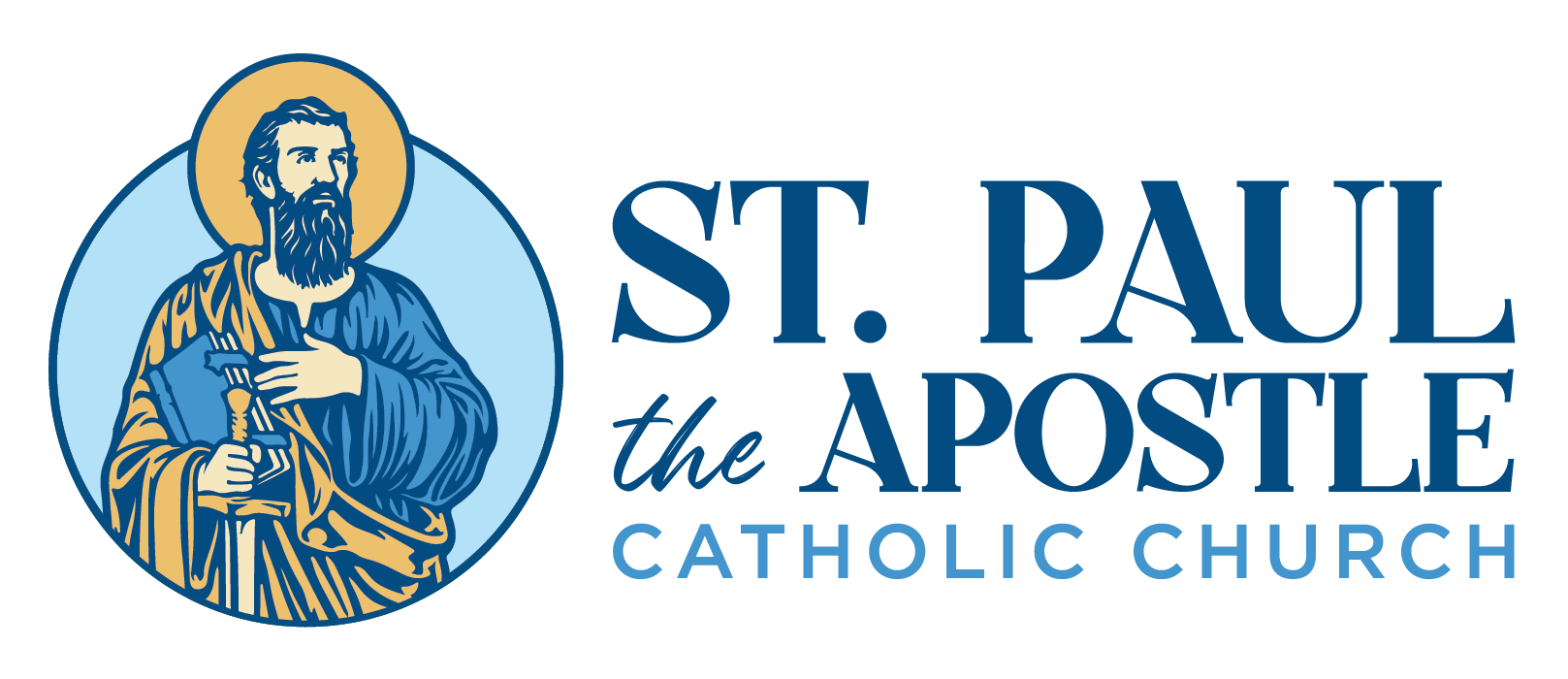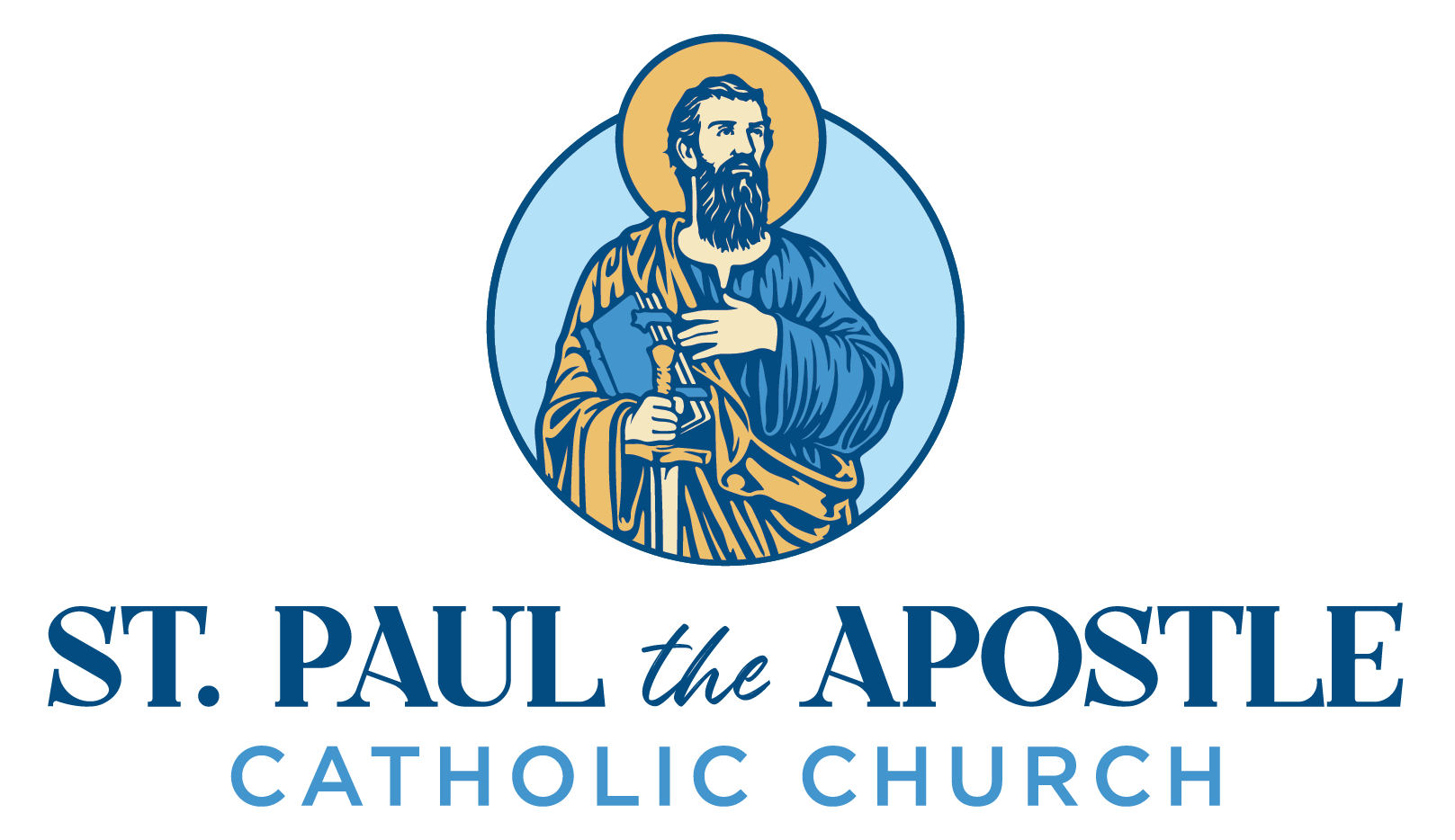Reconciliation
The Sacrament of Reconciliation (formerly known as Penance) involves a conversion of our hearts to God, a confession of sins to a priest, the forgiveness of our sins, a penance to make some amends for sin, and reconciliation with God and the Church. (Catholic Catechism for Adults)
Preparation for First Reconciliation
Students prepare for and receive First Reconciliation in the second grade as they prepare for First Eucharist. They must be registered parishioners and attend Mass every Sunday with their parents. Students in Catholic grade school and our Faith Formation program study for two years and are catechized for this sacrament during their religion classes.
Confession Times
Saturdays from 2:45 to 3:45 P.M. (last confession)
in the Sanctuary Confessional
It may have been a while since your last Confession.
It is not important to come to the priest with a laundry list of all the sins one has committed. What is important is to let him know that it has been a long time and to present to him those sins that you feel are affecting your relationship with God.


A Guide for Confession
-
Before Confession
An individual should prepare themselves with an examination of conscience. Below are links to the USCCB website that can help you with this.
Examination of Conscience for Young Adults
-
During Confession
Go into the confessional. You may kneel at the screen.
Begin your confession with the sign of the cross, "In the name of the Father, and of the Son, and of the Holy Spirit. My last confession was _________ weeks (months, years) ago."
Say the sins that you remember. Start with the one(s) that is most difficult to say. (In order to make a good confession the faithful must confess all mortal sins, according to kind and number.) After confessing all the sins you remember since your last good confession, you may conclude by saying, "I am sorry for these and all the sins of my past life."
Listen to the words of the priest. He will assign you some penance. Doing the penance will diminish the temporal punishment due to sins already forgiven. When invited, express some prayer of sorrow or Act of Contrition such as:
O my God, I am heartily sorry for having offended you and I detest all my sins, because I dread the loss of heaven and the pains of hell. But most of all because I have offended you, my God, who are all good and deserving of all my love. I firmly resolve with the help of your grace, to confess my sins, to do penance and to amend my life. Amen.
At the End of Confession
Listen to the words of absolution, the sacramental forgiveness of the Church through the ordained priest.
As you listen to the words of forgiveness you may make the sign of the cross with the priest. If he closes by saying, "Give thanks to the Lord for He is good," answer, "For His mercy endures forever."
-
After Confession
Give thanks to God for forgiving you again. If you recall some serious sin you forgot to tell, rest assured that it has been forgiven with the others, but be sure to confess it in your next Confession.
Do your assigned Penance.
Resolve to return to the Sacrament of Reconciliation often. We Catholics are fortunate to have the Sacrament of Reconciliation. It is the ordinary way for us to have our sins forgiven. This sacrament is a powerful help to get rid of our weaknesses, grow in holiness, and lead a balanced and virtuous life.
If you need additional assistance, there are pamphlets at the confessional door, and there is a plaque overhead with the "how to" text printed out on it.
WeConnect | By LPi




